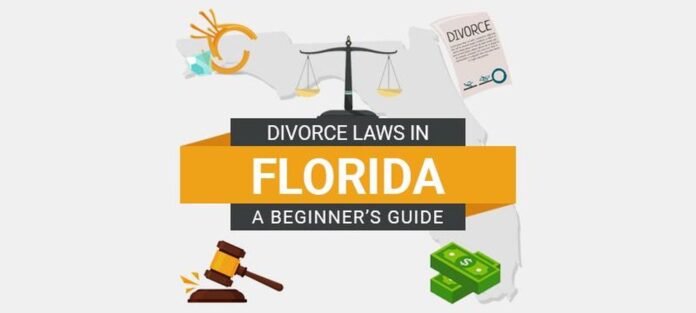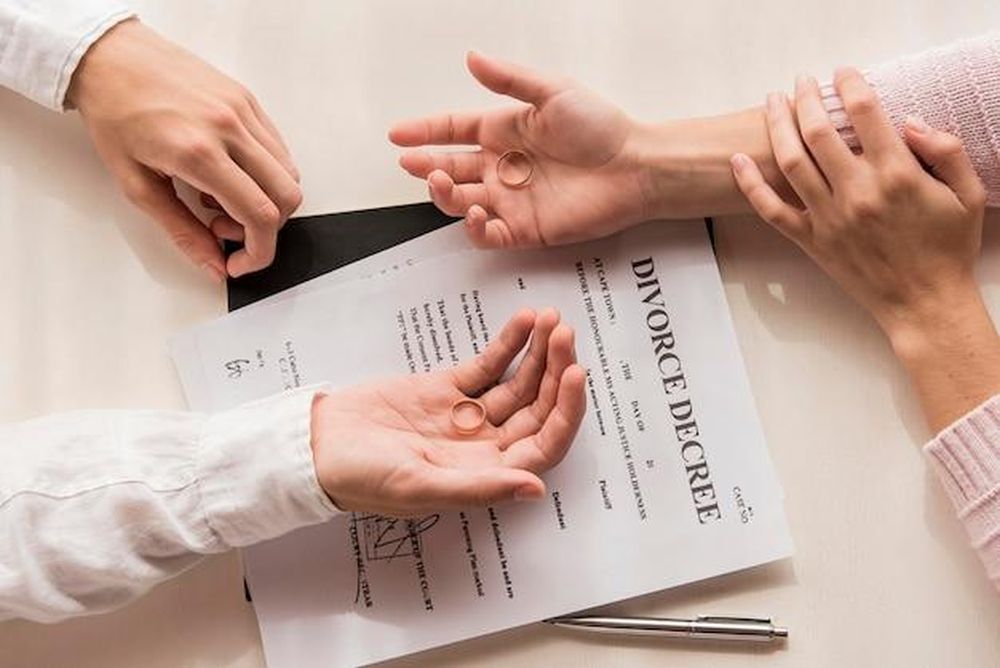
“True freedom requires the rule of law and justice, and a judicial system in which
the rights of some are not secured by the denial of rights to others.”
Jonathan Sacks
Filing for divorce in Florida
Important:
At least one spouse must have resided in Florida for at least six months prior to filing for divorce;
Florida is a no-fault state, which means that neither party must prove fault or wrongdoing to file for divorce. The only grounds necessary are the irretrievable breakdown of the marriage.
After ensuring that these prerequisites have been satisfied, you can initiate the divorce filing process. It is advisable to consult with a qualified attorney specializing in family law to guarantee the accurate completion and timely submission of all required forms and documents. This includes addressing any questions you may have regarding the duration of the divorce by publication process, such as “how long does divorce by publication take?”
Handing the divorce papers to the spouse

Specifically:
The petition must be served in person by you or an authorized person;
Your spouse has 20 days from the date of service to respond to the petition. If they fail to do so, you may receive an absentee divorce decree;
If your spouse lives out of state or their whereabouts are unknown, alternative methods of notification can be used.
It is important to note that serving divorce papers can sometimes lead to conflict or emotional reactions from your partner. It is advisable to think about how you will deal with any potential problems that arise during the divorce process. Seeking the advice of an experienced family law attorney will help ensure that all necessary steps are followed, and legal requirements are met throughout the divorce process.
Responding to divorce papers filed by your spouse
How to do it right:
Read the petition carefully and note the deadlines for responding;
Consult with an experienced family law attorney who can help you understand your rights and obligations under Florida divorce laws;
Prepare and file a response addressing each issue raised in the petition.
Keep in mind that if you do not respond to the divorce petition in a timely manner, an in-absentia judgment may be entered against you, which can have serious consequences for you. It is also important to note that if your partner cannot find you or does not know how to serve you with the papers, they can apply to the court for permission to serve by publication.
This process involves publishing a notice of divorce in the local newspaper within a certain period of time. If this happens, it is important that you act quickly to protect your rights. You should consult with an attorney about how long it takes to get a divorce by publication and what options are available to respond, even if you have not been served with the papers directly.
Mediation and settlement negotiations

Specifically:
Mediation – this is a process in which a neutral third party helps spouses negotiate and reach an agreement on divorce-related issues such as property division, spousal support, and child custody;
Settlement negotiations – these involve discussions of important topics between you and your spouse or with attorneys, with the goal of reaching an agreement without litigation;
Participating in mediation or settlement negotiations – a more cost-effective and less stressful option for resolving issues than lengthy litigation.
It is important to note that if there are contentious issues that cannot be resolved through mediation or negotiation, going to court may be necessary. The length of the divorce process depends on many factors, such as the complexity of the case, availability of court dates, etc. It is also important that both parties have legal representation during this process to protect their interests and ensure that any agreements reached are fair and reasonable.
Court Preparation

It is very important that you have competent legal representation throughout the divorce process. An experienced family law attorney will help you through every step of the court preparation process while protecting your rights and interests. They will also help ensure that all necessary forms and documents are properly completed and sent in a timely manner so that there are no delays in moving your case forward.
Litigation
Specifically:
the trial will take place in front of a judge who will hear testimony and evidence from both parties;
each side will have an opportunity to present their case and cross-examine witnesses;
at the end of the trial, the judge will rule on any unresolved issues, such as property division, child support, custody, and child visitation.
It is important to realize that litigation can take a long time and involve a lot of money. It also means that important decisions about your future must be made by a judge who does not know you or your family personally. If negotiations are unsuccessful or one-party refuses to come to an agreement on key issues related to Florida divorce laws, litigation may be necessary. In this situation, it is recommended that you contact an experienced family law attorney to help you through every step of this process, protecting your legal rights and interests at all times.
Post-trial motions and appeals
Understanding how the court works in Florida divorce matters is crucial if you are considering filing for divorce or responding to papers that your spouse files. The court process can be complicated and stressful, but with the help of an experienced attorney, you can successfully navigate this difficult time. Whether it is serving documents, preparing answers, or appealing decisions after the trial is over, understanding how long divorce takes can help you prepare accordingly by taking into account all aspects of Florida divorce laws in the context of the various proceedings in the Florida court system.








